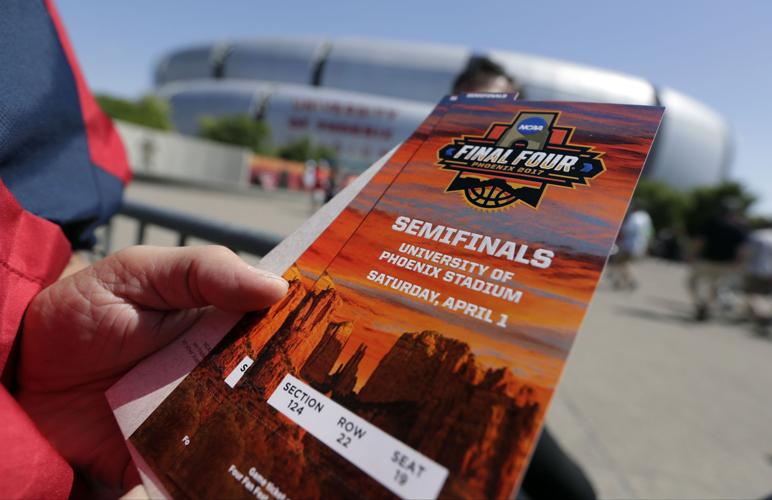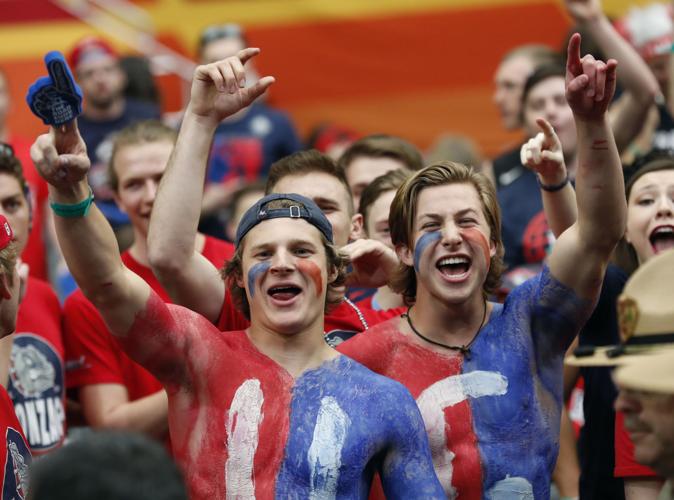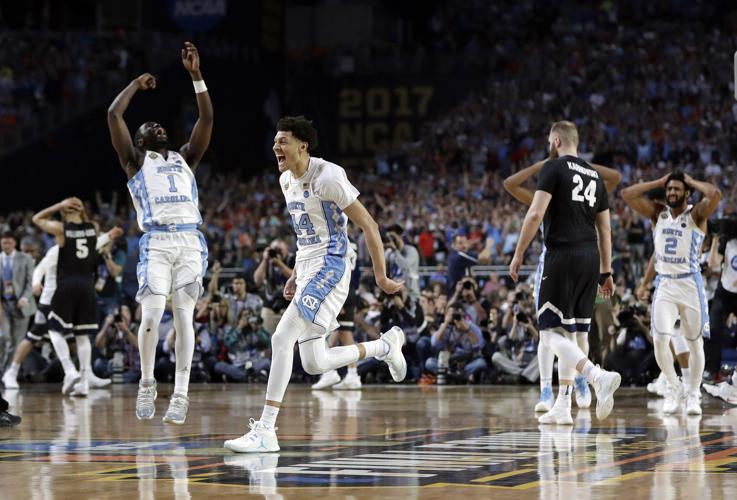GLENDALE — Arizona’s first Final Four college basketball championship generated more than $324 million in economic impact for the state, according to a new study.
But the direct benefit in terms of money spent by visitors in late March and early April is less, with the actual tax revenues generating just a fraction of that.
And there is no mention of the costs of the event to state and local governments because the groups that commissioned the study didn’t ask for them.
Despite that, Gov. Doug Ducey said he considers sporting events like this to be a positive for the state. He said it’s not just about generating the kind of new revenues that show up on a balance sheet but also providing a platform to lure executives of other firms to move operations here.
Michael Mokwa, a marketing professor at the W.P. Carey School of Business at Arizona State University, who conducted the study with colleague Anthony Evans, acknowledged that these events are held in the winter, a time when Arizona already gets tourists.
But Mokwa said he does not believe that the people who blow into Arizona for an event like the Final Four or the Super Bowl are simply replacing those winter visitors who might be here anyway. He said there is evidence that they actually are on top of that — and the dollar figures in the report reflect that.
Ducey agreed.
“We have more people coming to Arizona than we would otherwise in February and March,” the governor said. And he said just having the sporting events here and the other activities that surround them are even good for those who can’t afford a ticket to the actual games.
“There’s more to do for our citizens in February and March,” Ducey said.
Beyond the question of numbers, Mokwa said actual surveys of visitors who came for the Final Four not only determine how much they are spending but suggest they are staying longer than a typical tourist.
The actual breakdown of spending includes $121.1 million that the study says was spent directly by nearly 60,000 out-of-town visitors, not counting their airfare. The report says they spent an average of nearly 4.2 nights the area, spending more than $487 a day.
About 300 reporters, photographers and others in the media were in town for more than five nights on average, though they spent less than $410 a day.
On top of that, the report says other organizations, including the teams and host committee, spent $30.7 million, with an additional $7.4 million in sponsored events outside the host city.
The difference between that total and the $324 million, Mokwa said, is based on modeling of what happens to the money spent by tourists, including indirect and “induced” impacts.
All of that, according to the report, produced $6.8 million in sales taxes for the state, $4 million for the cities where events were held and an additional $900,000 for Maricopa County.
Evans said the Arizona Sports and Tourism Authority and the Final Four Host Committee, which paid for the study, did not ask for any computations of the costs incurred by state and local governments.
One of those involves police protection.
There were no immediate figures from the city of Glendale, where the stadium that hosted the Final Four is located.
But in 2015, when Arizona hosted the Super Bowl at the Cardinals stadium, Mayor Jerry Weiers complained that his community was being forced to absorb more than $2 million in costs for law enforcement. At the same time, he noted, many of the pregame events — and the tourist revenues that went with them — were actually being held in Phoenix and Scottsdale.
But lawmakers rebuffed his bid for a reimbursement fund.
On Wednesday, Weiers expressed less concerned that his city might have taken a financial hit from the Final Four, calling the publicity for Glendale “pretty incredible.”
Still, Mokwa said it can be “problematic” when the benefits of an event like this are spread among an entire area but the financial burden falls largely on a single community.






